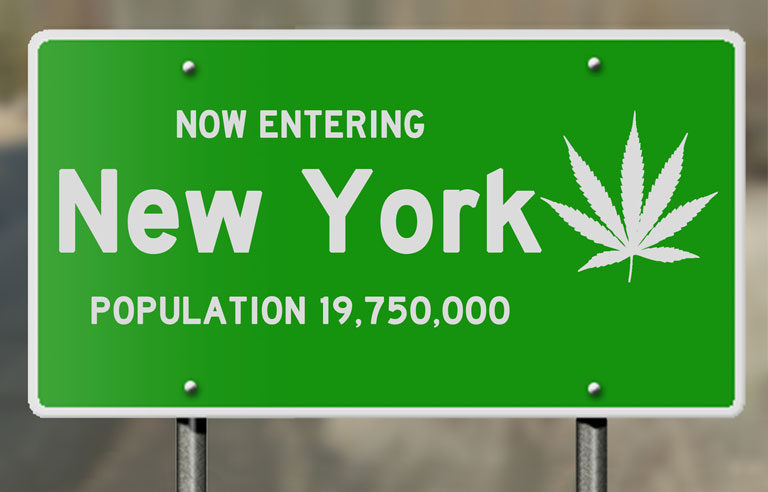New York State DOL answers FAQs on cannabis use and the workplace

New York — More than six months after New York legalized recreational use of marijuana, the state’s department of labor has published a guidance document intended to help employers navigate the Marijuana Regulation and Taxation Act.
Enacted March 31, the act prohibits employer discrimination against employees based on their cannabis use outside of the workplace, outside of work hours, and without use of the employer’s equipment or property. However, it also amends section 201-D of the New York Labor Law by adding subsection 4-a, which permits employers to take action or prohibit employee conduct if:
- The employer is in violation of a federal law or is required to take action based on a state/federal mandate, statute, regulation or ordinance.
- The employer would lose a federal contract or federal funding.
- An employee, while on the job, exhibits specific “articulable” symptoms of cannabis impairment that decrease or lessen their ability to perform assigned tasks and duties.
- An employee, while on the job, exhibits specific “articulable” symptoms of cannabis impairment that interfere with the employer’s obligation to provide a safe and healthy workplace as required by state/federal laws.
The guidance document features answers to 25 frequently asked questions that specifically address human resources issues, cannabis use at work or during work hours, workplace policies, applicability of the act, and drug testing of employees.
The document doesn’t include guidance on issues related to medical use of cannabis.
Post a comment to this article
Safety+Health welcomes comments that promote respectful dialogue. Please stay on topic. Comments that contain personal attacks, profanity or abusive language – or those aggressively promoting products or services – will be removed. We reserve the right to determine which comments violate our comment policy. (Anonymous comments are welcome; merely skip the “name” field in the comment box. An email address is required but will not be included with your comment.)

